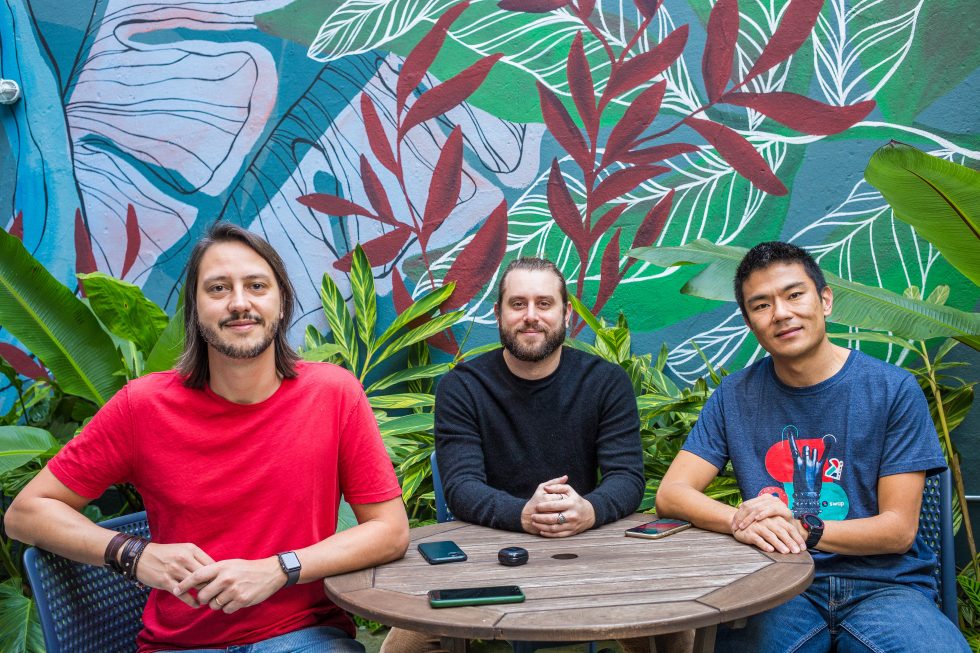Nobody has a crystal ball to see the future. However, and using another fantastic analogy, there are crumb trails that show how to get there.
We spoke with three investment funds and an acceleration program in Latin America –all with a regional presence, although focused on the largest markets– to learn how they interpret these signs along the way and what they think will happen in the VC and entrepreneurship sector in 2022.
But first, a reminder of how 2021 ended.
Fintech continued to attract the largest investment rounds: the industry took between 35% and 40% of VC money, according to LAVCA and ALLVP. There was an unprecedented investment by VC in Latin American companies: 174% more than in 2020 and more than all the money invested in the previous three years.
The explosion in the number of unicorns began in countries like Mexico, going from 0 to 7 in twelve months. Companies from other sectors, such as foodtech and proptech, also received more attention from investors. Another consolidation stage in the ecosystem began with companies acquiring others to grow faster and facilitate their entry into new markets. And e-commerce, driven by the pandemic, had a domino effect on companies in other sectors linked to digital payments.
What will happen in 2022? Some of what these investors told us: even more investment in fintech (surprising no-oe), growth in proptech, an explosion of interest in crypto, more acquisitions and… SPACs?
What’s crystal clear is that 2022 will be quite active for the entire ecosystem.
–DD
Cometa VC
Formerly known as Variv, this Mexico City-based venture capital fund has been investing in early-stage Spanish-speaking startups since 2012. Leading it are Rafael de Haro, co-founder and General Partner; Pepe Bolaños, General Partner; and Patrick Menendez.
Its portfolio includes are Bitso, iVoy, Kueski, Conekta, Bewe, GAIA, Gurus, Quinio, Skydropx, MPower and Financing, among others.
We spoke with Begoña Ortiz, associate, who shared Cometa’s outlook for 2022:
- More Series B and C will follow: rounds of more than $ 50 million are being seen, something that was rare before.
- Large uprisings led by Consumer Fintech companies: it is a trend that has been seen in past years and that will continue.
- Strengthening of the B2C and B2B models: before those of consumption were seen more. However, this will come to companies that are looking to improve efficiencies for businesses across different industries.
- Evolution of industries that we had not seen so much before: these have been catalyzed by the pandemic and previously resisted technological change. Among them are education, health, real estate, etc.
- More and better talent founding more and better companies: this due to the success stories (unicorns) that have been seen so far and inspire others.
- Successful exits: with better talent, more companies and more capital, there is less risk and more successful exits are generated.
Cometa already has its third fund, Cometa III, and is in the investment period. Begoña Ortiz said she expects interesting news to come with the companies in the Variv II portfolio.
Platanus Ventures
This acceleration program molded after Y Combinator was created in 2020 in Chile, by Paula Enei, Andrés Matte, Agustín Feuerhake, Jaime Bünzli and Joaquín Stephens. Today, it also has operations in Mexico and is in the expansion stage.
Platanus Ventures focuses on early-stage Spanish-speaking digital ventures. Some of the companies in its portfolio are Fintoc, Cardda, Milla, Toku, Tushop, Examedi, Conyappa, Cacttus, Payhaus and Crecy, among others.
We spoke with Joaquín Stephens, co-founder and partner, who told us that at Platanus Ventures they see the following:
- Two possible scenarios for the region: a positive one, which is what we have seen so far, in which investments for Latin America have doubled to the degree of a possible new capital record; and a negative one, which would imply a slowdown in investment.
- More investments in Edtech, Healthtech and Proptech: although it will continue to lead Fintech, funds will increase timidly in these sectors.
- Fintech will continue to attract attention: there will be a fertilization in the Web3, in crypto projects and, in general, in DeFi.
- An excess of capital may be more evident. Perhaps it will follow the trend of what happens in the United States, where the prices of the rounds every time increase more and the research behind it declines, causing a lot of money to be invested.
- This may be the beginning of a troubled future: there is too much capital available but, at the same time, doubts about the number of good companies to put it in. As there are few companies, the amount of the rounds has increased, which means that investigative rigor is lost and more risks are taken. This can happen progressively.
- Unicorns will continue to grow: globally there is also an unprecedented increase in these mythical companies, but there may be an excess of optimism. There is a craze for trying to win deals and that has inflated the unicorns.
- Startups buying startups: not only are large corporations or mature companies acquiring others, but there are already acquisitions between startups. This happens because they want the developer team, as getting a good team is slow. So by having capital, they do it to accelerate their growth.
Platanus Ventures is currently raising a new fund. In addition, they increased the investment ticket from $ 50,000 dollars for 5% to $ 100,000 dollars for 7%. The accelerator also plans to expand throughout the region and increase the number of financed startups: 100 startups in 3 years
ALLVP
The fund is based in Mexico and since 2012 it has mainly invested in technology companies operating in Latin America. It was created by Federico Antoni and Fernando Lelo de Larrea, who recently left the firm after a series of accusations of harassment.
The firm was widely recognized for having made an early investment in Cornershop, which in 2020 was acquired by Uber in one of the largest deals in Latin America ($ 1.4 billion in all stock). Also in his portfolio are Flink, Fintual and Nuvocargo.
Chloé Novène, partner of ALLVP and in charge of the investment efforts for fintech at the firm, shared with Contxto the following:
- Fintech will continue to attract an important part of investments. In 2021 it received more than 35% of regional investments, and we anticipate that in 2022 it will be almost the same percentage.
- Some interesting subsectors in fintech will continue to grow. The wealthtech sector, which democratizes access to investment products, is one of them. Companies like Fintual and Flink will have more competitors, and at the same time tools will emerge to invest in crypto or save in stablecoins, such as DolarApp, Lithium or Belo.
- The fintech infrastructure sector will continue to exploit its potential. Open banking companies such as Belvo, Palanca and Floid, as well as KYC (know your customer) enablers, including Mati, Nufi, and Zenpli, and new payments infrastructure (Chance Tech, Pomelo) will have room to grow.
- There will be an increase of new B2B marketplaces. The e-commerce boost caused by the pandemic could benefit startups such as Chiper or Frubana, and will extend to sectors such as fashion, food and construction.
- It will take less time to become a unicorn. ALLVP has been documenting soonicorns, or companies that are worth more than $ 100 million and paint to become unicorns. A super interesting trend is the time this transition is taking, as companies are growing and raising capital faster. they will soon turn into unicorns
- A clear trend of mergers and acquisitions will continue in Fintech. However, more startups are acquiring traditional financial players to acquire their operating licenses. Being a highly regulated industry, Fintech offers few options to obtain these licenses depending on the market where they choose to grow. This strategy has been implemented by players such as Ualá, Nubank and Credijusto, and is expected to increase in the coming months.
Angel Ventures
This firm, founded by Hernán Fernández, has been investing in early stage and growth companies in the region since 2008. It leads seed and Series A rounds in startups that drive innovative business models suitable for the Latin American market. Its portfolio includes Clip, Kueski and Iguana Fix with its Fund I; Homie, Urbvan and Mi Águila, with Fund II; and ViaPool and Slang with its Seed Fund.
Contxto spoke with Hernán and Camilo Kejner, managing partners, who shared their perspectives:
- Fintech will continue to be the trend. To a large extent, it will continue to be “the engine and the factory”, very interesting things, foodtech, edtech, e-commerce, social commerce issues and others. b2b play, but I think it will bring several surprises but being fintech, start to see a dizzying growth of insurtech, proptech.
- Consolidation in the main verticals. In the main ones, like fintech, payments, credit, there are two or three players that are hyper-funded, but none are really consolidated. There is a lot of capital available, so in 2022 we will see a deployment of that capital so that a clear winner can be defined in spaces where there is no room for two or three players.
- The Proptech sector will take off. It will grow as the world emerges from the pandemic, but we will see rapid growth in both this sector and Insurtech.
- Emergence of more unicorns. As they are appearing in record time, which is not necessarily the healthiest thing for the ecosystem, three or four more unicorns will emerge in the coming months. There is an abundance of capital and Mexico is taking a good part of it, but the question is whether such access to capital is sustainable in the long term.
- SPACs may hold some surprises. Nubank’s IPO could be a starting signal for many companies to go public, but few do not have the fundamentals to go IPO. Therefore, going public via SPAC could be an alternative.
- Social commerce will have a good moment. With the growth of the maker economy, it will be increasingly common to see influencers promoting something among their circles.
- The Latin American response to NFTs, and crypto will begin to boom. A wave of crypto use cases beyond cryptocurrencies or Bitcoin will be seen. Blockchain will be leveraged and we will see more innovative things that in the US or other markets have been around for a year or two.
- Digital payment methods will drive the gaming industry. The pandemic accelerated the conditions for online shopping, which brought as an inadvertent consequence the parallel growth of gaming. For that reason, in addition to improvements in fiber optic cabling and better quality connections, gamers in Latam are already participating on a large scale, which will lead to many opportunities in the sector.
Written by Sandra Perez and Daniela Dib.
You may also be interested in: Softbank is confident in the potential of LATAM Startups







